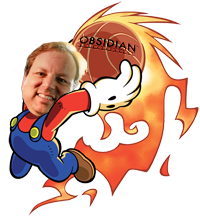These cuts at Xbox come amid a wider contraction in the video-game industry due to economic shifts following a period of rapid growth during the pandemic. Recently, Microsoft’s gaming division has expanded more than any of its competitors via the acquisitions of ZeniMax and Activision Blizzard for more than $76 billion combined. In February, Microsoft cut 1,900 jobs, mostly at Activision Blizzard.
The massive Activision Blizzard acquisition has ramped up scrutiny on the Xbox division from leaders at Microsoft, according to people familiar.
In recent years, Xbox became deeply invested in Xbox Game Pass, a subscription service that offers unlimited access to hundreds of downloadable games for a monthly fee. To fill the service with new enticements, Xbox acquired dozens of studios, including outfits known for making smaller games, such as San Francisco-based Double Fine.
While most game publishers are looking to take big swings with games that cost hundreds of millions of dollars, Xbox promised to support less sprawling creative titles such as Hi-Fi Rush with smaller budgets and lower sales expectations. It didn’t matter if a game sold tens of millions of copies as long as it helped bolster the Game Pass library.
But Game Pass has not seen the massive growth that Xbox boss Phil Spencer may have been hoping for.
Mat Piscatella, executive director of analysis firm Circana, said that monthly, non-mobile, video-game subscription spending in the US “has been flat to low single-digit growth” since the middle of 2021.
“In our data, Game Pass spending really had its big growth period in late 2019 through early 2021 and has since settled,” Piscatella said. “Purchasing games and add-on content as well as free-to-play models are still the vastly preferred method of getting to video games by US consumers, at least for now.”
While there’s no indication that Xbox plans to ditch the Game Pass model, there are hints that its big bets have not paid off. During the most recent quarter, sales of Xbox content and services were up 62%, but as Niko Partners analyst Daniel Ahmad pointed out last month, the growth was entirely do to the acquisition of Activision Blizzard. On social media, he noted that without sales from that deal, Xbox gaming revenue would have been down approximately 5% year over year, “with no software and services growth and sharp hardware revenue decline.”
With console revenue down, the company recently began releasing some of its games on competing platforms. In a March interview with the gaming site Polygon, Spencer said that “the thing that has me most concerned for the industry is the lack of growth.”








![Glory to Codexia! [2012] Codex 2012](/forums/smiles/campaign_tags/campaign_slushfund2012.png)















